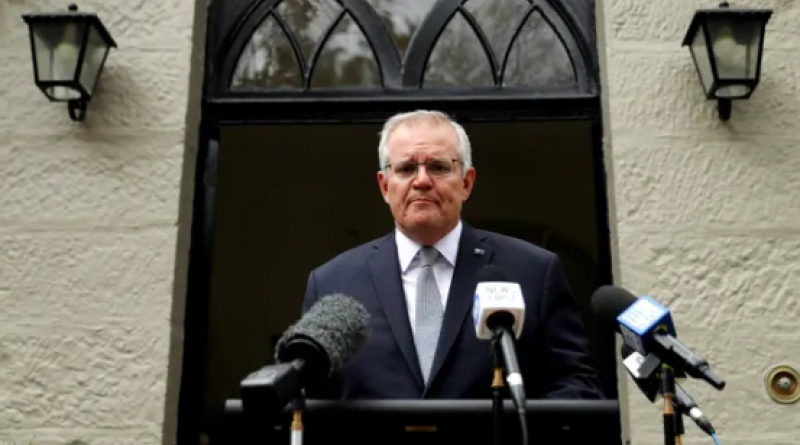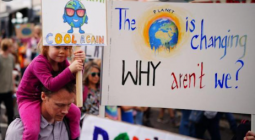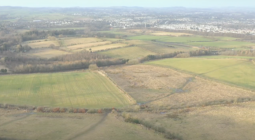Australian PM to attend Cop26 in Glasgow but emissions deal with Coalition partner still weeks off

Scott Morrison says it is ‘important’ to be in Glasgow for climate conference but notes there is no agreement yet with the Nationals
The Australian prime minister, Scott Morrison, has confirmed he will attend the Cop26 conference in Glasgow in two weeks but has signalled it might take a fortnight, rather than days, to land an agreement with junior Coalition partner the Nationals on new climate policy initiatives.
Given the proximity of the United Nations-led summit, organisers have required nations, including Australia, to confirm their representation at the event so that speaking slots for leaders can be assigned.
Morrison, who has been equivocating about his attendance for several weeks – in part, to avoid irritating Nationals inclined to accuse the prime minister of presiding over a policy stitch-up – confirmed on Friday he would attend the Cop26, because it was “important”.
But given Nationals are complaining privately about being railroaded by the Liberals, Morrison was careful to say no agreement had been reached with the junior Coalition partner on commitments for the conference. The Nationals party room will meet on Sunday.
Morrison had been hopeful Australia’s new policy commitments for Glasgow would be unveiled early next week, once government MPs returned to Canberra for a new parliamentary sitting fortnight.
But the prime minister pushed that timetable out on Friday.
“The government will be finalising its position for me to take to the summit prior to my departure over the next fortnight,” Morrison told journalists in Sydney.
“We’re working through those issues with our cabinet and with our colleagues and I look forward to those discussions concluding over the next couple of weeks.”
Morrison has been laying the groundwork for Australia to adopt a net zero commitment since Joe Biden won the US presidential election and brought the US back into the Paris agreement.
As well as landing 2050, the prime minister has also told colleagues he wants to increase Australia’s existing 2030 emissions reduction target as part of his current negotiations with the Nationals.
New emissions projections to be released shortly are expected to forecast Australia will beat the current target of a 26-28% cut by 2030 compared with 2005 levels, and the prime minister wants to reflect that in a new target to be outlined ahead of Glasgow.
But with some Nationals openly hostile to signing up to a mid-century net zero commitment and others on the fence, it is unclear whether Morrison will have the political capital to be able to take the extra step and increase the 2030 target.
Sources say Australia has raised with both the UK and US governments the idea of publicly declaring it would “overachieve” on its 2030 target without formally increasing the goal, but both allies have pressed Morrison to deliver the formal increase rather than window dressing.
Given the Nationals are not yet on board with 2050, and the internal discussion is at a delicate stage, the prime minister chose his words about his policy aspirations carefully on Friday.
“I simply say to everyone that net zero was … an outcome that I outlined at the beginning of this year consistent with our Paris commitments,” the prime minister said.
“The challenge is not about the if and the when, it is about the how,” he said. “I’m very focussed on the how because the global changes that are happening in our economy as a result of the response to climate change have a real impact.
“They will have a real impact in Australia.”
Morrison said the transition roadmap that had been considered by the government’s leadership group, Nationals ministers and the cabinet this week was about “ensuring that our regions are strong, that our regions jobs are not only protected but have opportunities for the future”.
“It is not just about hitting net zero,” he said. “That is an important environmental goal.
“But what is important is that Australia’s economy goes from strength to strength and the livelihoods and the lives that Australians know, particularly in rural and regional areas, are able to go forward with hope and confidence and that is what my plan will be all about.”
The roadmap outlining Australia’s transition to net zero was discussed by cabinet for the first time on Wednesday afternoon.
Ahead of that deliberation, sceptical Nationals asked Angus Taylor, the minister for energy and emissions reduction, to supply all the assumptions underpinning Treasury modelling informing the roadmap, not just the top-line findings.
Some Nationals remain implacably opposed to adopting net zero, and the junior Coalition partner will demand new commitments to revitalise regional Australia and boost employment in return for supporting any shift in climate policy.
15 October 2021
The Guardian




